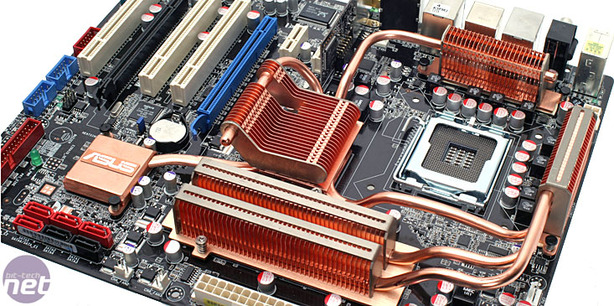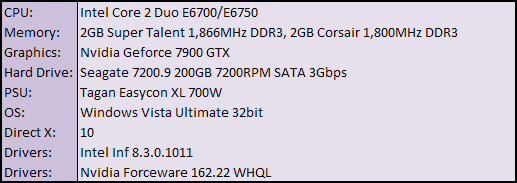
Introduction
We thought the concept of having 2GB of memory on board was innovative but possibly too expensive, so how about the reality - does it produce a genuine performance difference? The memory is meant to have a hybrid design between DDR2 and DDR3, so will this work to the benefit of the Premium? Does it actually offer better value? Can we actually overclock and run at 1,500MHz all day?This is the second part of our look at the Asus P5K3 Premium - if you are looking for information on the concept, layout and BIOS, please head on over to read part one of our P5K3 Premium review first.
Testing Methods:
With the exception of SiSoft Sandra and Everest, all of our benchmarks have been engineered to give you numbers that you are likely to find useful when actually using the products we have evaluated in the real world. We tested in Windows Vista and took an average of three runs in order to minimise the effects of background services.We are also focusing a lot more of our time on evaluating the stability of the motherboards (and platforms) using a stress test designed to highlight any of the potential weaknesses that the product may have. That involves a gradually increasing amount of stress starting with Prime95 and expanding to IOMeter and an endless loop of 3DMark06 if all is well. This is to ensure that all parts of the system are stressed simultaneously over a period of time.
We believe that the consumer is never likely to subject their platform to this level of stress and we are not expecting every product to complete an entire extended stress test. However, most poorly engineered products fail within the first couple of hours, or even minutes, allowing us to make a conscious decision on whether a motherboard (or platform) is worth your money, regardless of how well it performs in our benchmarks.

Test Setup:

Systems:
- Asus P5K3 Premium
- Asus P5K3 Deluxe

MSI MPG Velox 100R Chassis Review
October 14 2021 | 15:04








Want to comment? Please log in.